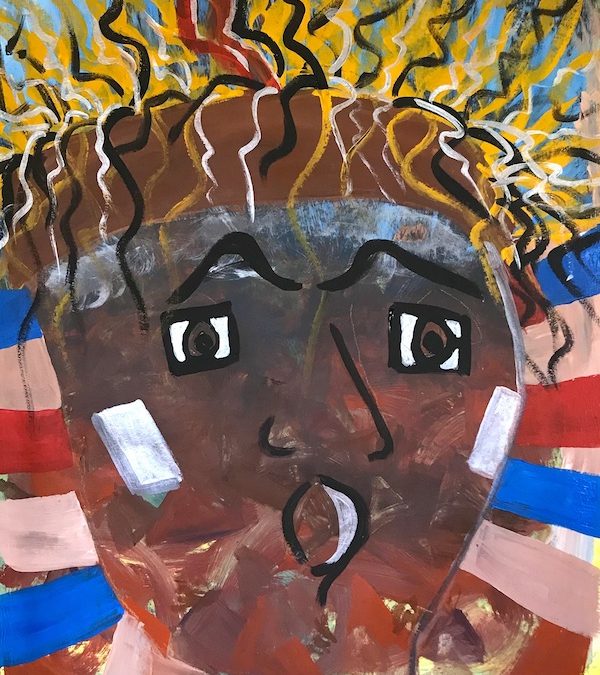(painting by workshop participant 2019)
I’ve heard it said that the comparison part of our brain is the last part of the obscuring mind to go.
And what suffering those insidious shoulds and criticisms bring, even as they disguise themselves as ambition and self correction!
Tara Brach (amazing meditation teacher) puts it beautifully:
“The limbic brain tells you something is wrong. The ego tells you something is wrong with you.” (tarabrach.com)
Ouch!
When you’re painting and you think they’re is something wrong with your painting, you don’t always think “hmm, I’ll just keep painting and see what happens…”
Often you’ll find yourself thinking and feeling: “This is not okay. I must not be good at this…I don’t know what I’m doing…there must be something wrong with me.”
And then you’re in managing mode, a state of vigilance, needing to fix your painting, get rid of it, solve the problem.
Sound familiar? (READ MORE)
All this fixing and hyper management isn’t that much fun and certainly not what drew you to creativity in the first place. And why for God’s sake would you want to paint again tomorrow and go through this again?
I have experienced this myself and see it often in my painting groups, how the creative process can quickly feel like life or death, like we have to make something “pretty” or we’re not okay.
But with a safe space, with the intention to be kind to yourself and to be in the exploring mode versus the evaluative mode, a whole world of creative play and surprise can open up to you.
Here’s one thing you can do before you even start painting to help you with this. Before you even pick up a paintbrush or decide where you’re going to start:
1. Light a candle somewhere in the room with the intention of allowing kindness and play into the space
2. Take a good two-five minutes to sit still or stand still without anything in your hands, just you and silence. And meditate.
3. If it helps you to have a guided meditation, pick a favorite centering meditation (like Tara Brach has on her website www.tarabrach.com) and simply listen to it.
4. Or perhaps try this: As you sit quietly, hear yourself say the word “Kindness” over and over as you sit in stillness.
With the intention to drop out of judgment mind and into play and freedom, even two minutes will go a long way in helping you open up your creative time.
I mean it when I say–without my own ritual like this, I would not be a painter. For the first several years I began every painting session with a short centering. And still today, when I begin feeling stuck–it’s this practice that brings me back into the present moment and the blank page in a way that gives me a sense of beginning lightly.
I’d love to know how this goes for you or what practices help you get set up well for your creative time, whether it be painting, writing, collaging, you name it.
Take Care,
Julie

